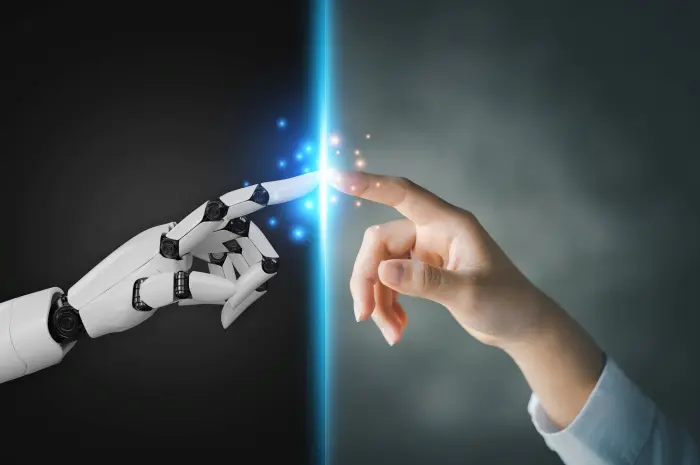
Discover how the evolution of artificial intelligence is transforming industries, shaping society, and redefining the future of technology.
Artificial Intelligence (AI) has become one of the most transformative forces of our time, reshaping industries, altering our perceptions of machine capabilities, and continually pushing the boundaries of what machines can achieve.
This article explores the evolution of AI, its milestones, and its profound impacts across various sectors.
1. Historical Background
The concept of AI dates back to ancient myths and stories of artificial beings endowed with intelligence or consciousness by master craftsmen.
However, the scientific pursuit of artificial intelligence began in earnest in the mid-20th century.
The term “Artificial Intelligence” was coined in 1956 by John McCarthy at the Dartmouth Conference, where the vision was set to explore ways machines could simulate aspects of human intelligence.
2. Milestones in AI Development
- 1950s to 1970s: Early AI Research: This era saw the development of basic algorithms and the proposal of the Turing Test by Alan Turing, which became a foundational idea in the philosophy of AI.
- 1980s: The Rise of Machine Learning: The introduction of machine learning, where computers began to learn from and make predictions based on data, marked a significant pivot in AI research.
- 1990s: The Emergence of Deep Learning: Neural networks, which mimic the human brain’s interconnected neuron structure, came into play, leading to what is now known as deep learning.
- 2000s to Present: AI Expansion and Integration: AI technologies have seen integration into a vast array of applications, from autonomous vehicles to sophisticated natural language processing and beyond.
3. Impact of AI on Various Industries
- Healthcare: AI is revolutionizing healthcare by improving diagnostics, personalizing treatment, and managing patient data. AI-powered tools can analyze complex medical data at unprecedented speeds and with accuracy competing with human practitioners.
- Finance: In finance, AI is used for algorithmic trading, fraud detection, customer service, and risk management, making operations more efficient and secure.
- Manufacturing: AI-driven automation and predictive maintenance have transformed traditional manufacturing, increasing efficiency and reducing downtime.
- Retail: AI enhances customer experience through personalized recommendations and inventory management, significantly impacting sales and customer satisfaction.
4. AI and Job Displacement
One of the most debated impacts of AI is its potential to displace jobs.
While AI does automate tasks, potentially reducing the need for human labor in certain roles, it also creates new job opportunities that require more complex and advanced skills.
The challenge lies in transitioning the workforce to meet these new demands.
5. Ethical Considerations
As AI becomes more sophisticated, ethical considerations are increasingly important. Issues such as privacy, security, and the potential for bias in AI algorithms must be addressed.
The development of AI governance and ethical frameworks is crucial to ensure that AI technologies are used responsibly.
6. The Future of AI
The future of AI promises even greater integration into daily life and across various sectors.
Emerging trends include the growth of AI in edge computing environments, more advanced natural language processing, and increasingly sophisticated autonomous systems.
However, alongside these advancements, continuous efforts in addressing ethical and security challenges must be maintained.
Conclusion
The evolution of AI is a testament to human ingenuity and the quest for progress.
From simple algorithms to complex deep learning networks, AI has grown to impact almost every aspect of modern life.
As we stand on the brink of what some call the Fourth Industrial Revolution, it is clear that AI will continue to drive transformation across numerous domains.
Understanding and shaping this influence is essential to harnessing the full potential of AI and steering its development in a direction that benefits all of humanity.


